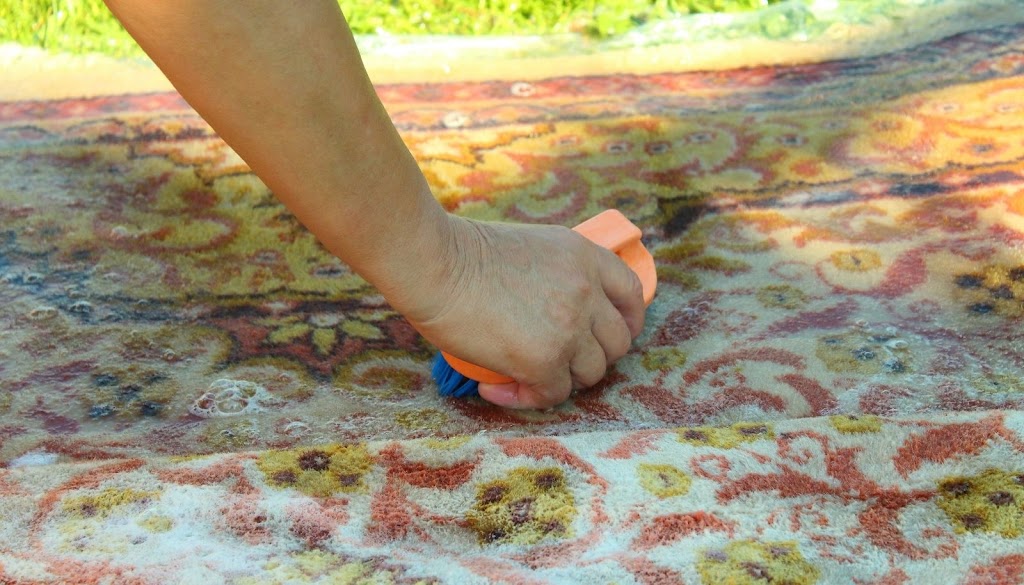Cleaning your carpets isn’t just about looks.
It’s an investment that pays off in ways you never thought of. Regular washing extends the life of your carpets. It’ll improves indoor air quality and save you money on replacements and health bills.
Let’s break it down.
How Carpet Washing Protects Your Investment
Carpets are expensive. From materials to installation, replacing them can break the bank. Regular carpet washing prevents wear. You’ll tear so your floors stay in good condition for years. Dirt and grime are like sandpaper, grinding away at the fibres with every step.
Removing the debris through cleaning protects the texture and look of your carpet. This will delaying the need for replacement.
The Cost of Not Cleaning Your Carpets
1. Faster Wear
Unwashed carpets wear out fast. Dirt and stains weaken the fibres, causing premature ageing. Over time, neglected carpets lose their plush and colour.
2. Health Bills Mount Up
Dirty carpets harbour allergens, mould and bacteria. These contaminants can cause respiratory issues, allergies or even infections. Regular cleaning reduces the risk, saves you on medical bills.
3. More Cleaning Costs
The longer you leave your carpets uncleaned, the harder it is to get them clean. Stains set, odours linger and deep grime requires intense (and expensive) treatment.
The Economics of Regular Cleaning
Save on Replacements
A clean carpet can last 10-15 years compared to 5-7 years for a dirty one. Professional cleaning is a fraction of the cost of a full replacement.
Lower Energy Bills
Clean carpets insulate better, so your home retains heat in winter and stays cool in summer. This saves you money.
Boost Home Value
If you’re selling your home proper “carpets washing” make it more attractive. Buyers notice dirty or stained floors which can lower your property’s value.
Health Savings You Don’t See Coming
Dirty carpets can trigger allergies and asthma.
They travel about your house dust mites, pet dander, poisons, and pollutants. Regular cleaning not only improves the surroundings. It’all also removes these irritants, thereby reducing medical visits by means of a better environment.
The Hidden Costs of DIY Cleaning
You think DIY carpet cleaning saves you money. But that’s not always true. Rental machines leave behind residues that attract more dirt.
Improper cleaning methods can damage fibres or cause shrinkage. Professional services may seem like an upfront cost but they save you costly mistakes in the long run.
Frequency of Carpet Washing: Finding the Sweet Spot
The right frequency depends on your household. Homes with pets, kids or high traffic need more frequent washing – every 6 months. Others can get by with an annual deep clean. Sticking to this schedule saves you overall maintenance costs and keeps your floors clean.
Why Professional Carpet Washing is Worth It
Professionals use high powered machines and eco friendly solutions. These tools get deep down dirt and bacteria that your household vacuum can’t.
Experts assess your carpet type and use the right cleaning method to avoid damage. This attention to detail gives you better results and longer lasting floors.
Professional carpet washing takes time and work. Hiring a professional releases your time so you may concentrate on other areas.
Easy Maintenance Tips to Save Even More
Frequent vacuuming removes surface dirt before it goes deep into the fibres. Focus on high traffic areas to reduce buildup.
Don’t let stains sit. Blot spills with a clean cloth and use a mild cleaner to prevent permanent marks.
Put mats at entryways to catch dirt before it hits your carpets. This simple step reduces cleaning frequency.
Change your layout to avoid permanent dents or wear in high traffic areas.
The Big Picture, Why Clean Floors Matter
Clean carpets make your home look better, feel healthier and more comfortable. They make rooms feel fresh, inviting and well maintained. By prioritising regular washing you avoid hidden costs and get long term savings. Every dollar you spend on maintenance pays back by preserving your investment and your family’s well being.
